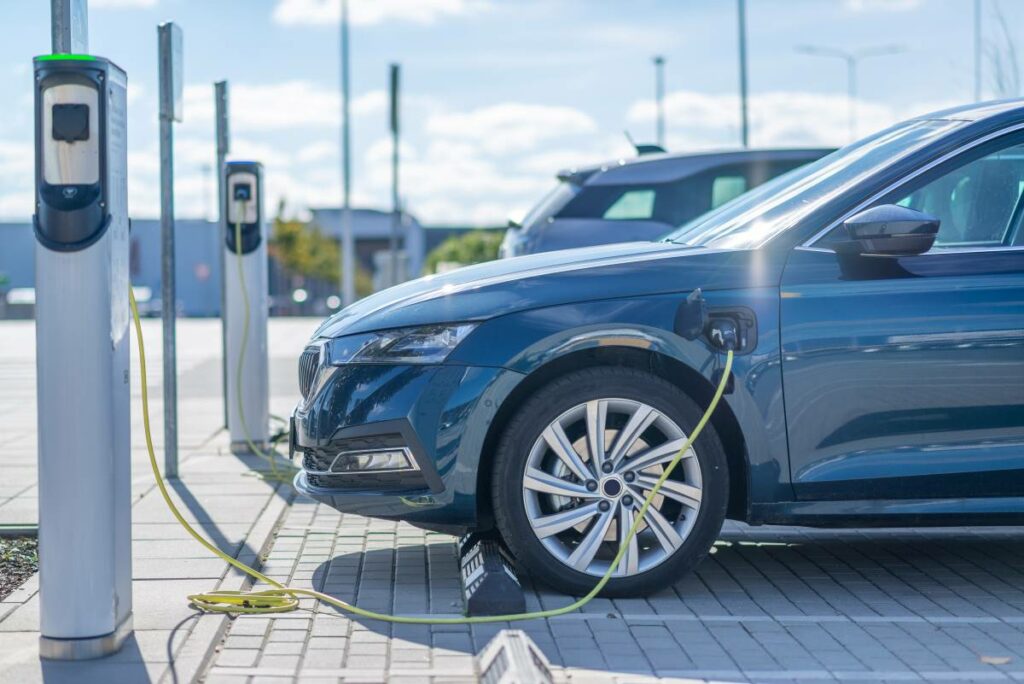In the quest to make the planet sustainable, more people are now embracing renewable energy products. For example, by installing solar panels in their homes or making the switch to electric vehicles. However, making this move can be expensive, which is why turning to government lead programs can be helpful.
With the introduction of the 2023 EV Tax Credit, you can now earn some benefits when you buy a new plug-in electric vehicle (EV) or fuel cell vehicle (FCV). This article examines the benefits, scope, and eligibility of this tax credit. Keep reading to learn how to claim this benefit.

What Is the Electric Car Tax Relief?
The electric vehicle tax credit or EV credit is a nonrefundable tax credit provided to American taxpayers who purchase plug-in electric or vehicles considered green. Powered by the US Department of the Treasury and the Inflation Reduction Act, this tax credit is an incentive to encourage purchasing and adopting qualifying electric cars.
The credit amount varies according to the following:
- The size of the batteries used
- The weight of the vehicle
- The ownership of the car
- How many cars the manufacturer has sold
Benefits of the Electric Vehicle Tax Credit
Some of the benefits of the EV tax credit include:
- Cost savings. The electric car tax relief provides financial benefits to offset the expenses of purchasing a new vehicle. You can get up to $7,500 for buying a new car.
- Environmental benefits. The tax credit encourages Americans to adopt vehicles that produce zero emissions, lowering their carbon footprint on the environment.
- Job creation. The credit can also propel the growth of the electric vehicle industry, creating more job opportunities for employable Americans.
- Technological advancement. Adopting electric vehicles can also propel technological advancement in the transportation industry, producing efficient tech products for all.
How Much Is the 2023 EV Tax Credit?
If you purchase a new electric car, you can claim up to $7,500 in tax credits under the Internal Revenue Code Section 30D.
Who Is Eligible for the Electric Vehicle Tax Credit?
You are eligible for the EV tax credit if you meet the following requirements:
- You bought the electric car for your own use and not for resale.
- You bought the car new.
- You use the car primarily in the US.
- Your EV tax credit income limit must exceed $300,000 for married couples, $225,000 for breadwinners, and $150,000 for other taxpayers.
Qualifying Vehicles
To qualify for the tax credit, the vehicle must:
- Have a battery with a capacity of 7-kilowatt hours.
- Have been manufactured or undergone assembly in North America.
- Have a weight lower than 14,000 pounds.
- Be made by a qualified manufacturer. See the list of qualified electric vehicle manufacturers here.
- Have a retail price that doesn’t exceed $80,000 for vans, utility vehicles, or pickup trucks.
- Have a retail price that doesn’t exceed $50,000 for other types of electric vehicles.
You can use the EX tax credit calculator to find out more about your eligibility.
Documents Needed
You will need the following documents when filing a claim for the 2023 EV tax credit:
- Proof of payment for the vehicle
- Certification of the car manufacturer
- The date of purchase
- Proof of any state or local incentives for buying the vehicle
- The vehicle’s battery capacity
- Name and taxpayer identification number (TIN) of the buyer and seller of the vehicle
- The vehicle identification number (VIN)
How to Claim the $7,500 EV Tax Credit
The application process is the same nationwide. To claim the EV tax credit, fill out IRS Form 8936 (Qualified Plug-in Electric Drive Motor Vehicle Credit) and your tax return. The tax credit will help your tax liability if you owe federal income taxes for the year you bought the vehicle.
It is vital to note that the credit is nonrefundable. This means that if it exceeds your owed taxes, the excess will not be refunded.
What If Your Claim Gets Denied?
Your claim for the EV tax credit can be denied for a host of reasons:
- Ineligible vehicle
- Inaccurate paperwork
- The credit on that car has already been claimed
- Insufficient tax liability
Whatever the case, you will be duly informed via mail or phone. You can correct the document and resubmit the claim if it was denied because of incorrect paperwork. However, if you believe the claim was denied in error, you can appeal the decision by following the process mentioned here.
Can You Qualify for Other Benefits?
Beyond the federal tax credit you receive after purchasing an electric car, you are also entitled to other EV benefits. They include:
- Electric car incentives by state. You can receive incentives such as tax credits, grants, or rebates for buying an EV. Some states also offer discounted parking, high-occupancy vehicle lanes, and removal from emissions testing.
- Utility incentives. Some electric utility also offers incentives such as discounted electric bills or rebates on charging equipment when you buy an EV.
A Win-Win for the Environment and Your Wallet
Are you planning to get a brand-new EV? There are several benefits your state may offer to help you with that. But that’s not all. The federal 2023 EV tax credit is designed to benefit and reward Americans who make the decision to buy plug-in electric vehicles. This move, powered by the US Department of the Treasury, is designed to encourage American taxpayers to embrace renewable energy, lowering their carbon footprint and making the environment more sustainable.
We hope you found this information useful. Don’t forget to visit our website to see what other benefits you may be eligible for.



